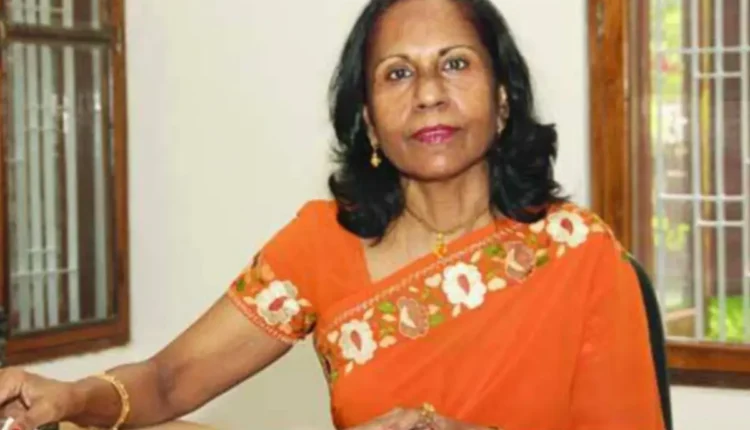Khaleda Ekram was an extraordinary woman who broke glass ceilings, leaving an indelible mark on the fields of architecture and education in Bangladesh. As the first female Vice-Chancellor of Bangladesh University of Engineering and Technology (BUET), she shattered societal barriers, inspiring countless women to pursue careers in traditionally male-dominated sectors.
Her remarkable career, spanning over four decades, showcases her dedication to academic excellence, social empowerment, and the betterment of urban planning. Khaleda Ekram’s legacy is one of vision, courage, and an unwavering commitment to societal development, making her a beacon of inspiration for future generations.
Early Life and Education of Khaleda Ekram: A Foundation of Excellence
Khaleda Ekram was born on August 6, 1950, in Dhaka, Bangladesh, into a family that nurtured intellectual growth and social awareness. Her parents, Ekram Hussain and Qamrunnessa Hussain, emphasized the importance of education for all their children, including their four daughters. This upbringing ignited Khaleda’s passion for learning, particularly in architecture, which would later define her professional and academic journey.
Khaleda graduated with a Bachelor of Architecture from BUET in 1974, where her thesis on a “Tourist Resort at Cox’s Bazaar” reflected her innovative approach to sustainable design in Bangladesh’s unique environment. She continued to hone her skills, obtaining a Master’s degree in Urban and Regional Planning (MURP) from the University of Hawaii in 1980. Her graduate thesis, titled “Revitalization of Residential Areas of Old Dhaka,” underscored her dedication to enhancing urban spaces.
Khaleda Ekram’s commitment to academic growth did not stop there. In 1992, she pursued postgraduate studies at Lund University in Sweden, focusing on architecture and development, demonstrating her commitment to lifelong learning.
A Stellar Career: Shaping the Future of Architecture
Khaleda Ekram’s career as an architect and educator began in 1974 at Bastukalabid Limited, followed by a brief stint at Parikalpak Sangstha Limited. However, her real passion lay in teaching, and in the same year, she joined the Department of Architecture at BUET as a lecturer.
Over the years, her roles evolved, from assistant professor in 1977 to associate professor in 1986, and ultimately, to full professor in 1995. Her dedication to academic excellence and her students led to her appointment as the Head of the Department of Architecture in 1997 and later as Dean of the Faculty of Architecture and Planning in 1999.
During her tenure, Khaleda focused on urban planning, housing, community development, and gender issues. She was a pioneering voice in ensuring that urban spaces were not only functional but inclusive, reflecting the needs of diverse communities. Her international experience, including her work as an assistant architect planner in Honolulu and her involvement in community service projects at the East West Center, enriched her contributions to Bangladesh’s urban development.
The First Female Vice-Chancellor of BUET: A Historic Achievement
In September 2014, Khaleda Ekram made history by becoming the first woman to be appointed Vice-Chancellor of BUET, one of the most prestigious institutions in Bangladesh. It was a groundbreaking moment for women in academia, as she became only the second female Vice-Chancellor in the country’s history. However, her appointment was met with controversy, as some questioned her seniority. But Khaleda stood strong, and her short yet impactful tenure proved her administrative prowess.
Under her leadership, BUET saw a revival of academic discipline, with a significant reduction in session jams—an ongoing problem that had disrupted the academic calendar. Khaleda was instrumental in creating an environment where academic progress and extracurricular engagement flourished, improving the overall experience for students. Her leadership demonstrated that women not only deserve a seat at the table but can lead with distinction and transformative impact.
A Legacy of Empowerment: Khaleda Ekram’s Contributions to Women’s Education
Throughout her career, Khaleda Ekram was a passionate advocate for gender equality, particularly in education. She believed that empowering women through education was key to building a more just and equitable society. Her work as the President of the Women Architects, Engineers, and Planners Association (WAEPA) from 2009 to 2016 highlighted her dedication to providing opportunities for women in these fields.
Her legacy was further solidified when, in 2023, she was posthumously awarded the prestigious Begum Rokeya Padak for her contributions to women’s education in Bangladesh. This recognition serves as a testament to her lifelong commitment to breaking barriers and advocating for the inclusion of women in all aspects of society.
Awards and Honors: A Life of Distinction
Khaleda Ekram’s outstanding contributions did not go unnoticed during her lifetime. She was the recipient of numerous accolades, including the Outstanding Alumni Award from the University of Hawaii’s Department of Urban and Regional Planning in 2010. She also held leadership roles within the East West Center Association and served as a gender advisor for international organizations like the University of Alberta – BUET Institutional Linkage Project. These roles underscored her global influence in architecture, education, and gender equity.
Her work as an honorary advisor for the Bibi Khadeja Kalayan Sangstha, a nonprofit welfare association, reflected her deep-rooted commitment to community service. She spearheaded efforts to raise funds during natural calamities, provided free schooling for underprivileged children, and established vocational training programs for women, thereby improving their economic independence.
Personal Life and Resilience: A Heart of Strength
Khaleda Ekram’s personal life was marked by her resilience and dedication to her family. She was married to architect Haroon ur Rashid, and together they raised three children, Mariam Ali, Mashida Rashid, and Khaled Yasin Rashid, each of whom pursued careers in environmentalism and public health. Khaleda’s ability to balance her professional ambitions with her familial responsibilities speaks to her strength of character.
Her life was tragically cut short in 2016 when she was diagnosed with non-Hodgkin lymphoma. Despite her illness, Khaleda continued to serve as Vice-Chancellor until her final days, a testament to her unwavering dedication. She passed away on May 24, 2016, but her legacy lives on through the many lives she touched and the institutions she helped shape.
Also Read:Rhys Williams: A Legacy of Versatility and Leadership in Football

